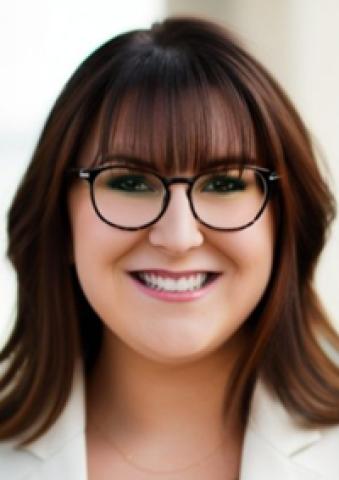Abstract
Excerpted From: Keri S. Turner, It's All in Your Head: A Legal Analysis of Juror Bias Against Mentally Ill Criminal Defendants and How Defense Attorneys Can Mitigate it, 23 Journal of Law in Society 101 (Winter 2023) (86 Footnotes) (Full Document)
 Legal scholars have often noted that predispositions towards certain characteristics can result in a biased jury. Even the United States Supreme Court has recognized that preconceived ideas can control verdicts, highlighting how different perspectives can impact a case in unanticipated ways, noting that juries created from individuals who derive from dissimilar circumstances as the defendant would be “... deprive[d] ... of a perspective on human events that may have unsuspected importance in any case that may be presented.” While jurors are expected to remain impartial, everyone serving on a jury begins their role with a unique view of the world, which influence verdict deliberations. Jurors compare each piece of evidence with situations that they have encountered in their own lives; they use their own experiences to determine if the piece of evidence is reliable or reasonably feasible. Thus, hence, past experiences affect jurors' judgment of criminal cases.
Legal scholars have often noted that predispositions towards certain characteristics can result in a biased jury. Even the United States Supreme Court has recognized that preconceived ideas can control verdicts, highlighting how different perspectives can impact a case in unanticipated ways, noting that juries created from individuals who derive from dissimilar circumstances as the defendant would be “... deprive[d] ... of a perspective on human events that may have unsuspected importance in any case that may be presented.” While jurors are expected to remain impartial, everyone serving on a jury begins their role with a unique view of the world, which influence verdict deliberations. Jurors compare each piece of evidence with situations that they have encountered in their own lives; they use their own experiences to determine if the piece of evidence is reliable or reasonably feasible. Thus, hence, past experiences affect jurors' judgment of criminal cases.
Preconceived perceptions of mental illness are one of the many potential biases held by juries. Past research has implied that, when jurors hold more negative inclinations towards mental illness, they are more likely to decide on a guilty verdict. In fact, the simple process of using mental health terminology in a courtroom can trigger bias. In one study, research found that when an “associative link” is formed in jurors' minds, it can create bias. Correspondingly, societal stigmas toward mental illness create an associative link between criminality and mental illness, leading jurors to be predisposed to hand down a guilty verdict to a defendant who has a mental illness.
Additionally, current law does little to mitigate the potential risk of bias against mentally ill defendants. The Sixth Amendment of the United States Constitution, guarantees the accused the right to a fair and impartial jury. Consequently, defendants may choose to dismiss a juror for-cause during the voir dire process if the prospective juror shows bias. However, the issue with this rule is that it is difficult to provide tangible evidence into what a juror is thinking in order to substantially demonstrate to the court that the juror is biased.
This Note elevates these issues facing mentally ill defendants seeking an impartial trial. Equal treatment requires exposing bias against mental illness in jurors and the current law's ramifications. Finally, this Note aims to provide tools for defense attorneys to actively mitigate the effects of prejudice and alternative legislative proposals to remedy these issues.
[. . .]
Potential prejudice against a defendant is not only a threat to individual justice, but a threat to a fair and honest judicial system. Bias can rear its head in various forms--from prejudice against certain races, sexes, or classes to discrimination based on the defendant's appearance, education level, or criminal acts. Unfortunately, bias against mentally ill offenders has often made its way into courtrooms and placed itself on the list of potential biases to look out for in jurors.
While current law does not currently permit for-cause dismissals of jurors who display potential prejudice against mental illness, this article proposes reform on this legal issue by the way of statute amendments, regulation changes, and shifts in jurisprudence. Until such changes are adopted, current defense attorneys can practice a few strategies to combat the prejudicial nature of mental illness bias. The first way is by avoid using inflammatory terms (e.g., psychopathy) when speaking about their client, while educating jurors about scientific explanations of mental illness. Meanwhile, defense attorneys should avoid relying too heavily on expert testimony--complicated neurological data has been shown to confuse and frustrate jurors. Another tactic attorneys can use is to combat preconceived beliefs about mental illness by demonstrating to the jury that their clients are human; jurors should empathize with the defendant--not scorn them. Finally, defense attorneys should make use of preemptory challenges to strike potential jurors from the jury pool who may hold biases against their client. This involves asking pointed and strategic questions that allow a lawyer to glean if a juror may potentially be biased.
Unfortunately, the percentage of defendants that enter the criminal justice system each year with one or more mental illnesses continues to increase. While the criminal justice system poses many threats to these individuals due to the nature of their illness, one particular area this happens is through biased jurors. As the world becomes more aware of social issues and the gravity of mental illness, the criminal justice system must focus on these concerns and adopt strategic responses to combat injustice.
B.A., 2020, University of Michigan-Dearborn. J.D., 2023, Wayne State University Law School.


